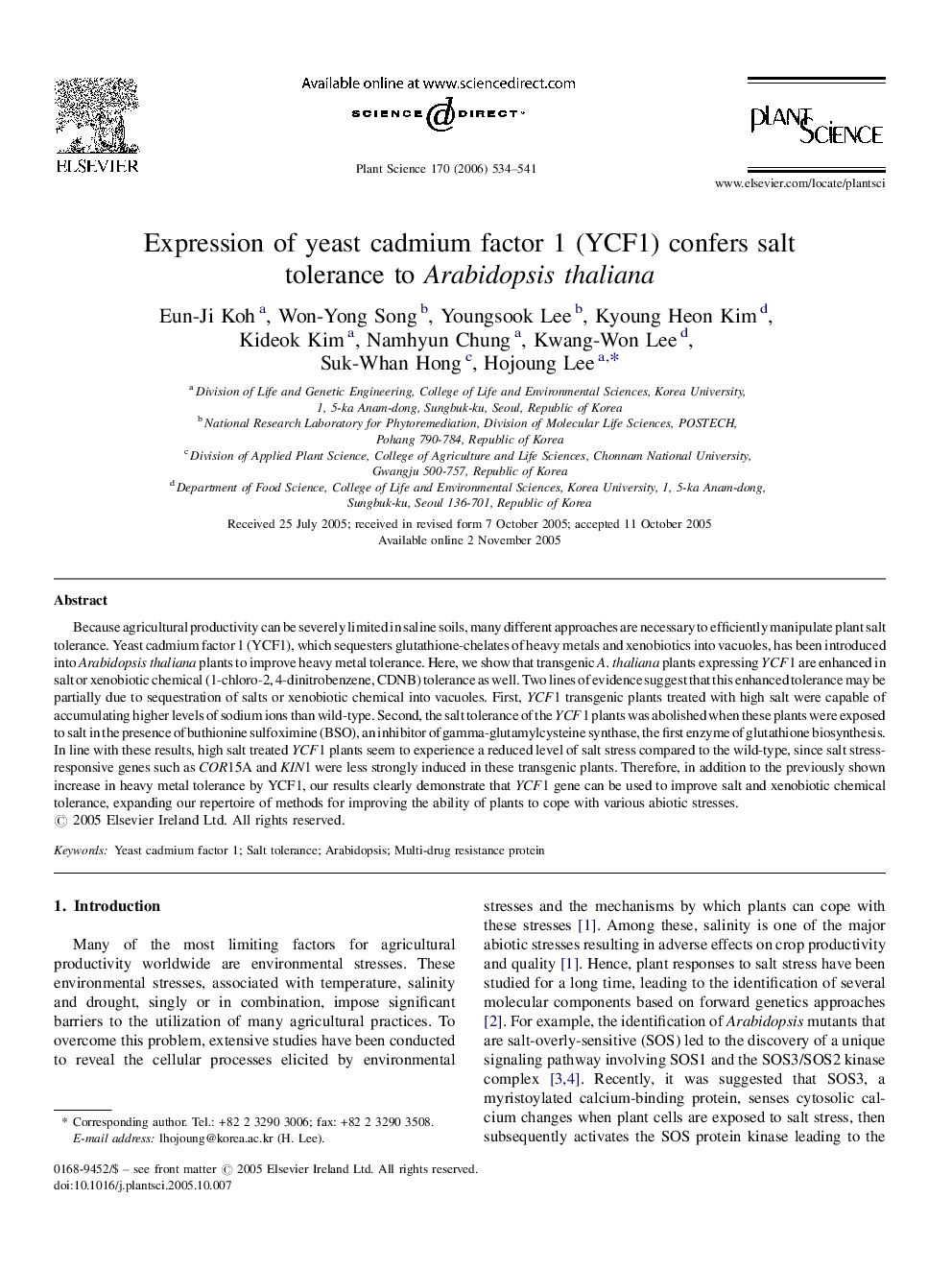| Article ID | Journal | Published Year | Pages | File Type |
|---|---|---|---|---|
| 2018865 | Plant Science | 2006 | 8 Pages |
Because agricultural productivity can be severely limited in saline soils, many different approaches are necessary to efficiently manipulate plant salt tolerance. Yeast cadmium factor 1 (YCF1), which sequesters glutathione-chelates of heavy metals and xenobiotics into vacuoles, has been introduced into Arabidopsis thaliana plants to improve heavy metal tolerance. Here, we show that transgenic A. thaliana plants expressing YCF1 are enhanced in salt or xenobiotic chemical (1-chloro-2, 4-dinitrobenzene, CDNB) tolerance as well. Two lines of evidence suggest that this enhanced tolerance may be partially due to sequestration of salts or xenobiotic chemical into vacuoles. First, YCF1 transgenic plants treated with high salt were capable of accumulating higher levels of sodium ions than wild-type. Second, the salt tolerance of the YCF1 plants was abolished when these plants were exposed to salt in the presence of buthionine sulfoximine (BSO), an inhibitor of gamma-glutamylcysteine synthase, the first enzyme of glutathione biosynthesis. In line with these results, high salt treated YCF1 plants seem to experience a reduced level of salt stress compared to the wild-type, since salt stress-responsive genes such as COR15A and KIN1 were less strongly induced in these transgenic plants. Therefore, in addition to the previously shown increase in heavy metal tolerance by YCF1, our results clearly demonstrate that YCF1 gene can be used to improve salt and xenobiotic chemical tolerance, expanding our repertoire of methods for improving the ability of plants to cope with various abiotic stresses.
